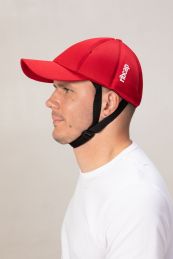
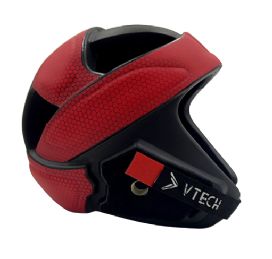
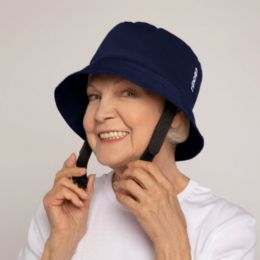
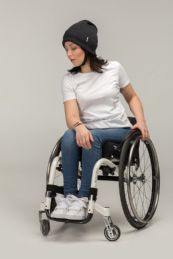



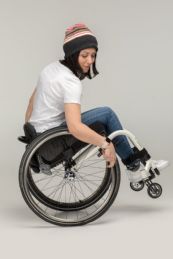

~9.jpg&newheight=260&quality=80)




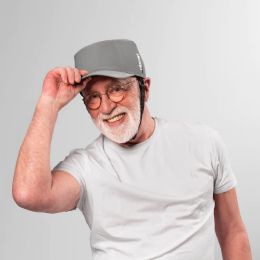
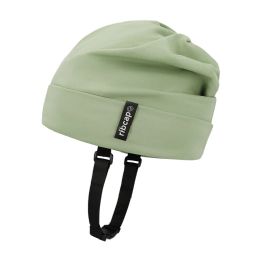
Who Needs a Protective Helmet?
Protective headgear is available for infants, children, teens and adults. A protective helmet can substantially reduce the risk of head injuries, and can also be used to protect the head after surgery. Individuals prone to seizures, or children and adults who display 'head banging' behaviors often successfully use a protective helmet to reduce the risk of injuries. Children of all abilities could certainly benefit from wearing protective headgear in those rough and tumble younger years, and special needs children and adults who may be prone to falls or balance issues can find wearing helmets advantageous as well. Protective headgear helps shield children experiencing sensory and/or motor development delays from head and skull injuries.
It is highly recommended to consult a healthcare professional when making a decision to purchase a protective helmet, either for yourself, or for a loved one. Using your own input about the potential user's unique requirements combined with professional and medical expertise will guarantee the right choice for the particular individual's protective headgear needs.
How do I Choose the Right Helmet for Me or My Child?
With the wide variety of protective helmets available, it is important to determine the correct type for your own needs, or for those of your child. Some points to consider include the degree of the potential user's physical activity, the length of time the helmet will need to be worn, the frequency and severity of spasticity or seizures, the degree of the user's self abusive behaviors, and the environment that the user comes in contact with, and how many potential striking surfaces like floors, walls and furniture there are in the user's vicinity.
The basic types of protective helmets include hard shell, soft shell and dual core/foam/fabric. Both hard and soft shell helmets provide great protection against traumatic brain injury, and help to secure and shield the head from other injuries. Some of our protective headgear also includes options for face guards, visors or bars which offer additional safeguarding for individuals who tend to fall forward. Every protective helmet should have an adjustable chin-strap of some type, to ensure that the helmet remains secured to the head at all times.
While all of the protective helmets are designed to be as lightweight as possible, the dual core/foam/fabric tend to be the most lightweight, and can be especially indicated for individuals with weak neck muscles, balance disorders, autism and cerebral palsy. These types of helmets can also work well for extra head protection in aquatic therapies and activities.
One of the most important aspects in choosing the correct helmet is proper fit. Generally, it is advised to measure the circumference of the head at the level of the eyebrows, with occipital measurement determined from the eyebrows to the back of the head, where the helmet is to end, and then over the top of the head to the top of the ears. Because finding the correct size is so important, it is highly recommended that this be determined with the help of a healthcare professional. If the protective headgear does not fit right, it may not offer the same level of safety, nor will the user comply with wearing it if it is not comfortable.
Helmet Features and Options
Our protective headgear selections offer a vast array of features and special options to fulfill unique, individual requirements. Here are just a few helmet highlights:
Rehabmart offers protective headgear with selections from well-known manufacturers such as Danmar, Playmaker, North Coast, Toppen, Patterson Medical, and Dawn of Creation.
Hulet Smith, OT
Rehabmart Co-Founder & CEO
ck